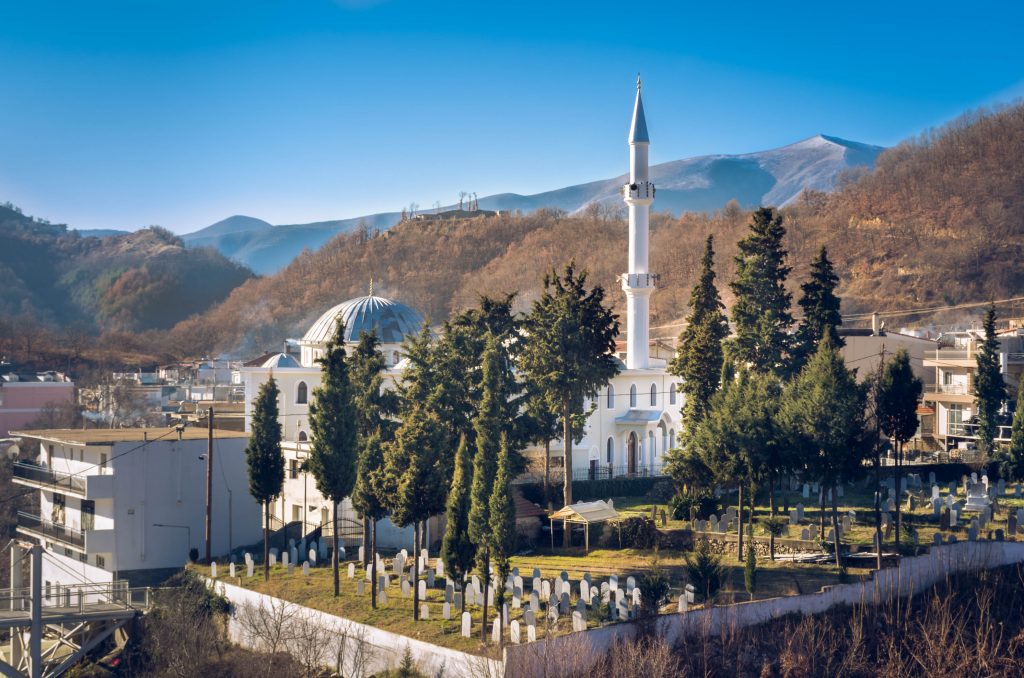The region of Western Thrace lies just across the border of Türkiye. It reaches the Karasu (Nestos) River to the east, with the district of İskeçe lying at the western end of the region. Today it forms part of the territory of Greece.
Historically, Thrace was absorbed into the Ottoman State in 1352 having been a part of the Byzantine Empire for around a thousand years. Thrace then remained a part of the Ottoman Turkish Empire for over five hundred years.
The population of Thrace under the Ottomans was largely Turkish and Bulgarian, with a large Greek minority. In 1821, the Greek elements in several parts of Western Thrace, such as Lavara, Maroneia, and Samothraki, rebelled and supported the Greek War of Independence against the Ottomans, but they were not successful.
Following the Balkan League’s victory in the First Balkan War (Oct. 1912-May 1913), the whole of Western Thrace was captured by Bulgaria.
In 1913, a Government of Western Thrace (Garbi Trakya Hükümeti) was formed. Though short lived, this state is significant as being the first Turkish republic, created ten years before the establishment of the Republic of Türkiye.
This small country ceased to exist when the Bulgarians, who had lost the Second Balkan War, were granted Western Thrace under the terms of the Treaty of Bucharest, signed in August 1913. Yet that was soon to change too. Following Bulgaria’s defeat in the First World War (1914-1918), the entire region’s control was transferred to Greece.
During the Balkan Wars, the First World War and Türkiye’s own War of Independence, major populations of Greeks, Turks and Bulgarians were forcibly displaced.
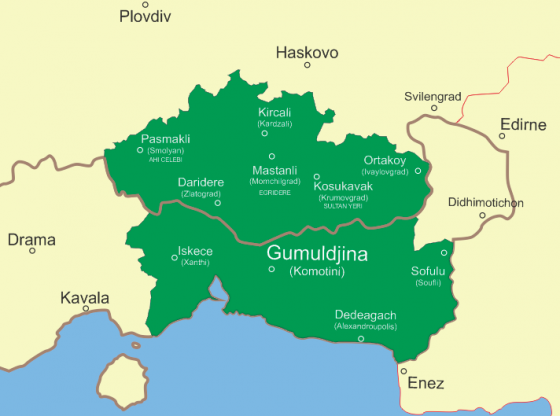
However, Greece was keen for the headquarters of Orthodox Church to remain in Istanbul. As such, the Christian Orthodox Greeks (Rum) of Istanbul were exempt from the population exchange of 1923 that was agreed between Greece and Türkiye. In return, Greece permitted the Muslim Turks of Western Thrace to be similarly exempt.
Western Thrace is the only place in Greece where its native Muslims were not massacred or expelled. The region is home to multi-ethnic Muslim communities of Turks, Pomaks and Roma, which today form an estimated 117,000 people, or 32% of the local population. In Xanthi, where the late Ahmet Mete was Mufti, Muslims represent 43% of the population.
Restriction of Human Rights
The Treaty of Athens (1913), followed by the Treaty of Lausanne (1923), guaranteed the rights of the native Turkish population of Western Thrace, which Greece, to this day stubbornly refers to as “Greek Muslims”.
Despite these treaties, for many years there were major human rights violations by Greece upon its ethnic Turkish population. Problems included deprivation of citizenship, constraints on freedom of movement, a denial of ethnic identity and equal rights, degrading treatment, restrictions on freedom of expression and freedom of religion, and limitations on political freedom.
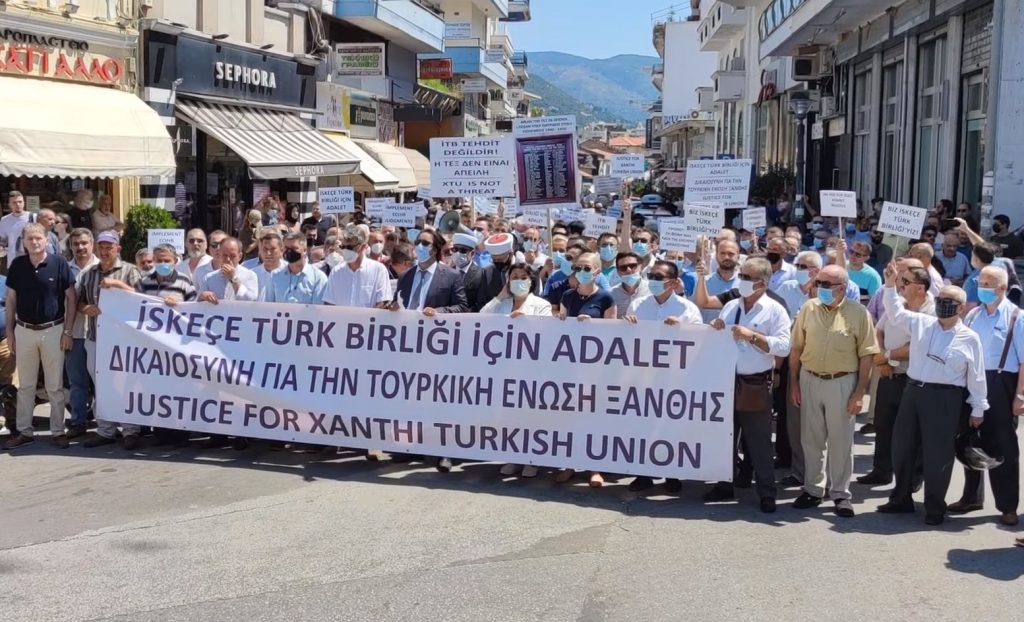
During a period of martial law that was implemented following the 1967 military coup in Greece, the military junto imposed a policy of systematic assimilation for the Turks of Western Thrace. Even after martial law ended, the Greek authorities continued to impose martial law in Western Thrace and brutally implement assimilation activities.
Undermining the lawfully elected Mufti
A mufti (müftü in Turkish) is the religious head of a Muslim community, and plays an important role as a local or national community leader.
For Turks, the mufti sustains the religious and national identity of the Turks, as part of maintaining and promoting the cohesion of the community.
Türkiye’s Orthodox Greek is a minority in Istanbul, and are allowed to elect their patriarch without State interference. In Greece, however, the state neither facilitates nor allows Muslims to have a Chief Mufti, nor do they permit Turkish Muslims of Western Thrace to elect their own muftis despite this right being enshrined in the Treaty of Lausanne and Greek law Number 2345. Instead, the Greek State selects the Mufti for Xanthi (İskeçe), Komotini (Gümülcine) and Evros, who are then routinely rejected by the local Muslim populations.
Greek Orthodox Ecumenical Patriarch Bartholomew I of Constantinople, pictured in 2022, is supported by the Turkish government
Strikingly, while Athens strives for the Archbishop of the Orthodox Church in Istanbul to act independently, and be recognised as the local and global leader of Orthodox Greeks and Christians, it is agitated by attempts by its minority Turkish community to do the same. Athens refuses to allow the Turks of Western Thrace to elect their own mufti, and to have him serve as their local community and religious leader.
It is important to note that, since 1985, controlling the office of the Mufti has formed part of the Greek government’s policy of systematic assimilation of the Turks of Greece.
Despite these deliberate official obstructions, the Turks of Western Thrace continue to elect their own muftis. As a result, in İskeçe there are two muftis. One is the mufti assigned by the State, the other elected by the local, mainly Turkish Muslim community, with each side exclusively recognising authority of their own mufti.
Prosecutions by the Greek State
Greece often tries to claim that in Türkiye, the State appoints the mufti, but this sidesteps the practices outside of Muslim-majority countries, where the local Muslim communities elect their own mufti. It also negates the legal rights the Turks of Western Thrace have under international tries and various human rights laws.
The failure by the Greek State to accept the rights of the Turks and other Muslims in Western Thrace has seen the two regularly clash.
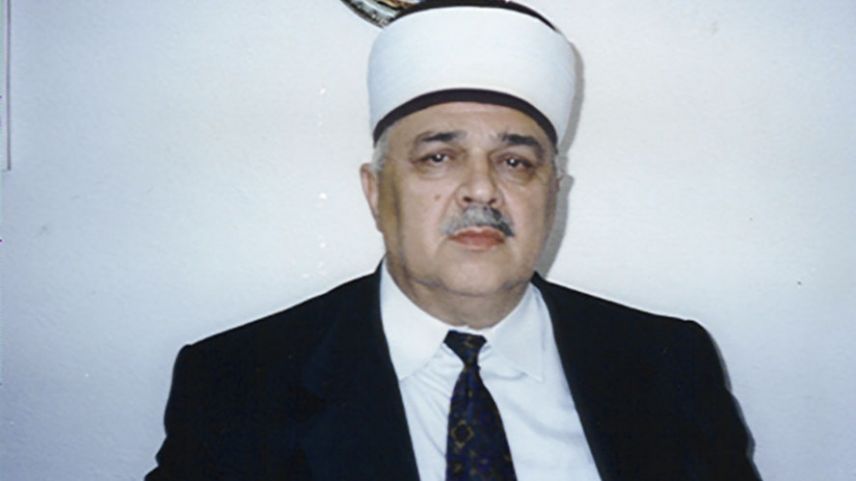
In 1990, Athens picked Mehmet Şinikoğlu to be the Mufti of İskeçe/Xanthi. Following this, the Turkish community of İskeçe/Xanthi elected Mehmet Emin Aga to be their mufti.
Unwilling to accept the democratic choice of the local Muslim community, the Greek government filed lawsuits against Aga on charges of ‘usurping official authority’.
Aga, who was attacked by Greek far-right groups many times, was sentenced to hundreds of months in jail. He spent 6 months in prison, and was then released due to health problems. Aga eventually died from liver failure in 2006.
The election of the Mufti of İskeçe/Xanthi
Following the death of Aga, the Turkish community of İskeçe reached out to the Greek State to prepare and support elections for a new mufti. After the community waited for three months, it was decided by leading figures of the community to hold elections at the mosques on the day of Eid.
There are 115 mosques in the İskeçe district, 95 of which are active for all daily services, whilst the remaining 20 mosques are only open for Ramadan and Eid prayers.
Of these 95 active mosques, the government’s chosen mufti is only welcomed in one of them, which is located in the city. This mosque needs additional security, provided by the Greek police, to ensure the state’s mufti can attend without interference.
The remaining 94 mosques, their imams and congregations are all loyal to the community-elected mufti. In 2007, the community elected a local man, Ahmet Mete, as their Mufti, who recently passed away.
Such is the extent of the loyalty to the community-elected Mufti, that the government appointed mufti is not allowed by the population of Xanthi/İskeçe to set foot in any of their mosques, nor will the state’s Mufti be asked to officiate over religious services, such as mevlid, funeral services, or special religious occasions such as Ramadan prayers.
The local population view the government-appointed mufti as a puppet, with no real connection to the local Muslim community. For the Greek State, they are concerned that the elected Mufti is more loyal to Ankara than to Athens.
Responding to anti-Turkish racist attacks
Over the past fifty years, there has been a change in the local demographics of Western Thrace, where there are now many more ethnically Greek citizens. Far right groups of Greeks regularly target the Turkish community, resulting in many, especially women, children and the elderly, feeling vulnerable to such attacks.
The aim of these fanatical Greek groups is to instil fear and also eliminate the local Turkish identity. Groups will visit ethnically Turkish villages to make racist chants or to daub racist graffiti on walls, such as “Turks out!” and “death to Turks”.
Racist graffiti against the Turkish community in Greece

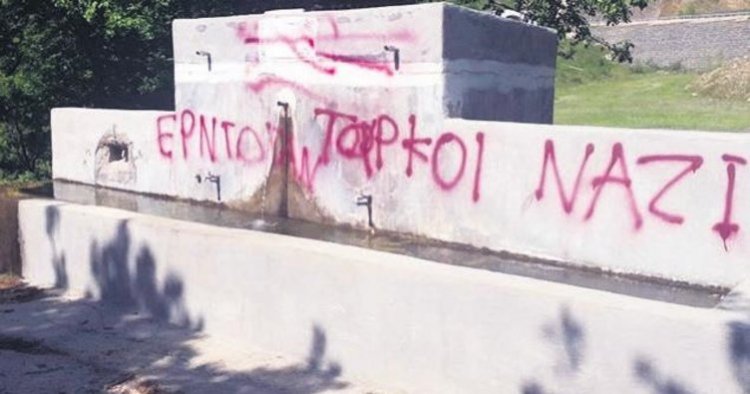
Sadly, after years of institutionalised anti-Turkish sentiment, such views are now being passed on to Greek children, who lack the tolerance required for multi-cultural living. In response to these developments, the late Ahmet Mete said in 2013:
“The Muslim Turks of Western Thrace were here before the Greeks arrived. We did not come from anywhere, they found us here when they came. It will not be easy to throw us out of here, as we are the owners of our homeland.
“Our homeland may be in Greece’s control and we have respect for the Greek state. We do not revolt against our State, we do not bring anarchy to our State…
“You can neither send us to Türkiye, nor to Arabia, nor to Bulgaria. This is our homeland, our grandparents’ graves are here, our children’s graves will be here too!”
We can all take inspiration from the life and struggles of Ahmet Mete, and will remember him as a mufti, community leader and human rights activist, who despite all obstacles lived his life with courage in the service of his community.
This article was penned by Mustafa Kureyşi, chair of the Cezire Derneği.
Main photo, top, of Pomakohoria, Xanthi, Greece, in 2019. Photo © Giorgos Kritsotakis /iStock
Mufti of Xanthi (İskeçe) and leading figure of Turks in Greece, Ahmet Mete dies aged 57

